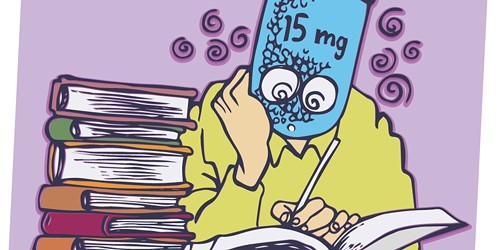Fifty-five percent of Americans take at least one prescription medication.
Americans spend more than $325 billion per year on prescription drugs. We pay, by far, the highest prices for necessary prescription drugs in the world. We spend 50 percent more per capita on drugs than, say, Canada and Germany, and two to six times as much for specialty pharmaceuticals such as cancer and diabetes drugs.
The pharmaceutical industry wants to keep it that way. That’s why today it has 1,100 lobbyists in Washington, D.C. In the 2016 elections, it spent $58 million to support the campaigns of congressional and presidential candidates. This year, it will spend about $300 million on congressional lobbying. No wonder Congress is, shall we say, a bit shy about passing legislation that might lower the profits of U.S. drug companies.
 Greg Cravens
Greg Cravens
But if Congress did want to lower drug prices, here are 10 things it could do. Some of these proposals are conservative (fewer drug regulations), some liberal (more government involvement in pricing). Nearly all are supported by a majority of voters in both parties:
1) Let Medicare negotiate drug prices. Nearly a third of all prescription-drug spending in the U.S. is done by Medicare, meaning it could have tremendous leverage to lower drug prices. Yet Medicare is, by law, forbidden from negotiating with pharmaceutical companies over the prices of the drugs it pays for. If Medicare negotiates, drug prices will drop.
2) Give generics a fighting chance. In theory, when the patent on a brand-name drug lapses, similarly effective, similarly designed generic drugs can enter the market to provide price competition. But FDA rules place huge obstacles in the way of creating generics; approval of a generic can take many years and cost millions of dollars. And Big Pharma often games the system: For example, a Big Pharma company can make a small, medically meaningless tweak in a patent-expired drug and then claim it is a “new” drug that is not duplicated by generics. Big brand-name companies are also known to pay smaller generic companies to keep their generics off the market, thereby avoiding generic competition.
3) Make drug companies justify their pricing. Require drug makers to be transparent about their manufacturing, research, development, advertising, and lobbying costs, and about how much profit is built into the price of each drug. Profiteering companies would be publicly shamed into moderating costs.
4) Allow drugs to be imported from Canada. Canadian drugs are just as safe as drugs made and sold in the U.S., and they are cheaper. But current Food and Drug Administration (FDA) rules, sometimes written by Big Pharma lobbyists, put big obstacles in the way of importing Canadian drugs.
5) Let more drugs be sold over the counter. In other countries, safe, well-researched drugs like statins and birth-control pills are sold over the counter, thereby eliminating the prescriber and pharmacy middlemen for many drugs.
6) Give automatic approval to drugs approved by the European Medicines Agency (EMA). Like Canadian drugs, these are as safe as FDA-approved drugs. The EMA’s approval process is at least at tough as that of the FDA, and the drugs are far cheaper, in most cases, than their American equivalents.
7) End direct-to-consumer advertising of prescription drugs. These are those TV ads you see during the nightly news. They often encourage the public to buy more expensive drugs than they need.
8) Set prices based on the effectiveness of drugs. Compel drug companies to reveal, more transparently than they do now, just how well their drugs work compared to their cheaper competitors.
9) Control the “orphan drug” designation more tightly. An orphan drug is a drug used by very few patients. To get a pharmaceutical company to make and sell the drug, the government gives it a monopoly on the drug, and then allows it to charge whatever it wants — sometimes thousands of times what the drug costs to make. Many Big Pharma companies have found ways — too complex to go into here — to earn the “orphan” designation by skirting regulations.
10) Stop issuing patent monopolies on essential drugs, and have the government determine those drug prices. This has worked in other developed countries, but it won’t soon happen here — too many Big Pharma lobbyists. No sense tilting at windmills, so better to focus on items 1 through 9.
Ed Weathers is a former editor of Memphis magazine, now retired from the faculty of Virginia Tech. He lives in Blacksburg, Virginia. Read about Ed’s personal battle with Big Pharma in the September 2017 issue of Memphis or at www.memphismagazine.com.